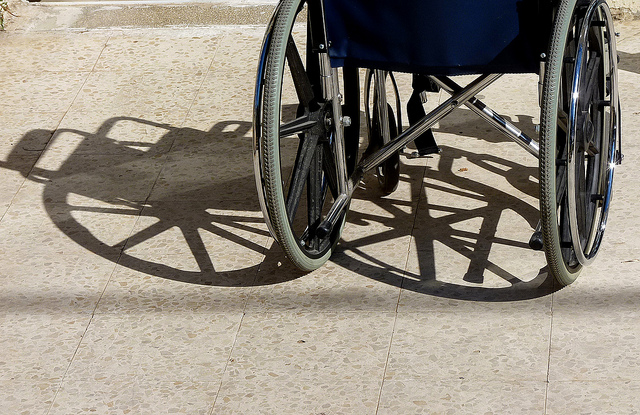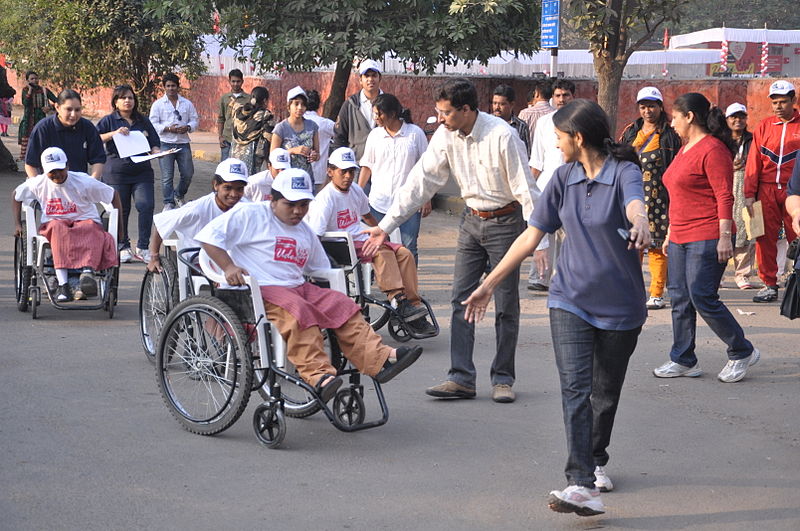Dear States, End Your Cruel Apathy And Give The Disabled Their Legal Due!
Certain states have failed to bring the Rights of Persons with Disabilities Act, 2016, into force. Why?

When Parliament enacted the Rights of Persons with Disabilities Bill, 2016, it was seen as a landmark piece of legislation which established a paradigm shift in how the Indian polity understood and thought about disabilities.
From a mere concern for social welfare, it became an issue of human rights, and our lawmakers passed appropriate legislation to address this lacuna in our laws.
“The Act lays stress on non-discrimination, full and effective participation and inclusion in society, respect for difference and acceptance of disabilities as part of human diversity and humanity, equality of opportunity, accessibility, equality between men and women, respect for the evolving capacities of children with disabilities, and respect for the right of children with disabilities to preserve their identities,” state Choudhary Laxmi Narayan and Thomas John in a paper published for the Indian Journal of Psychiatry.
It encapsulates the spirit of Article 14 of our Constitution, which guarantees all citizens the right to equality, which in this case translates into equal opportunity.
Even though it’s been nearly a year and a half since Parliament enacted the Disabilities Act, certain states are yet to notify the rules. Without notifying the rules, those who stand to benefit from this piece of legislation cannot do so.

According to the Indian Express, the Lieutenant Governor and the Delhi government are yet to notify the rules under the act. A minister in the Delhi government said that it would take another two months before the rules are notified under the act.
“It will take a month for people to give suggestions and objections. Very few states have notified the rules; we are looking at doing it in two months,” said the minister in question.
Earlier this month, the Madras High Court pulled up the Tamil Nadu government for the same and ordered it to publish and notify rules within two months.
“The State Government may, subject to the condition of previous publication, by notification, make rules for carrying out the provisions of this Act, not later than six months from the date of commencement of this Act,” reads Section 101 of the Rights of Persons with Disabilities Act, 2016.
In other words, once Parliament passes a law, it’s up to States to establish rules and notify it.
Despite its concerns, the Disabilities Act 2016 is a critical piece of legislation, which increased the types of recognised disabilities from the existing 7 to 21—including conditions such as sickle cell diseases, mental illness, speech and language disability, thalassemia, haemophilia and others.
Until the respective State governments notify the rules, government institutions like district hospitals cannot distribute disability certificates to those who fall under the new set of disabilities recognised by the Disabilities Act, 2016.
To the uninitiated, a person with any benchmark disability (or those with at least 40% of any of the recognised disability) is eligible for a disability certificate which allows him/her to avail of benefits or concessions offered under available State schemes.
This is a problem that isn’t merely limited to Disabilities Act. In fact, according to a study by Vidhi Centre for Legal Policy, a New Delhi-based think-tank working on legal reform, it takes an average of more than 8.5 months for a law passed by Parliament to come into force.
Read also: How a Woman Braved Disability, Poverty & Body Shaming to Become a Teacher
The study analysed over 44 laws that parliament had enacted from 2006 to 2015. When a law is passed by Parliament, the next step is receiving the assent of the sitting President. What the study measured was the time lag between receiving presidential assent and the law coming into force.
Once a law receives presidential assent, there are two further steps. “First, the government must bring it into force through notification in the Official Gazette. The second step – which is not essential but integral to the practical working of the law – is the framing of rules. Most laws require rules in accordance with the law – for its implementation – approved by the legislature before they are presented to each house of Parliament,” says this report by IndiaSpend.
Ideally, the rules of the said piece of legislation must be brought before the House. However, as certain lawmakers have complained, on most occasions these rules are never brought up for discussion. When one reads a news report of a law being passed by Parliament, the general expectation is that this is the new law of the land.

In the case of the Disabilities Act, certain citizens who were ready to avail of their rights under the new law have to wait for 1.5 years to avail of its benefits.
This is patently cruel. In fact, the Supreme Court made a note of this unhealthy practice when it slammed the Centre for its inability to bring the Juvenile Justice Act 2015 into force.
Read also: Meet Jitendra Mane, Who Teaches Rural Children Despite His Crippling Disability
“I would imagine that before you come out with the Act, you have to have the rules in place,” Justice Lokur said, according to The Hindu. “Such a view would apply to any law. You have got to get everything in place.” One hopes that the respective state governments pay heed to his words and ensure that those with disabilities receive the benefits and concessions they are entitled to.
Like this story? Or have something to share? Write to us: [email protected], or connect with us on Facebook and Twitter.
NEW: Click here to get positive news on WhatsApp!
This story made me
- 97
- 121
- 89
- 167
Tell Us More
We bring stories straight from the heart of India, to inspire millions and create a wave of impact. Our positive movement is growing bigger everyday, and we would love for you to join it.
Please contribute whatever you can, every little penny helps our team in bringing you more stories that support dreams and spread hope.



















